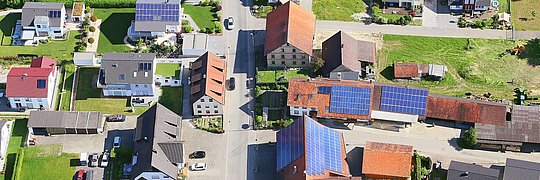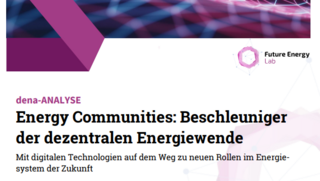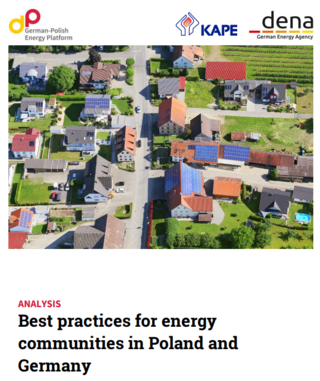
Implementing the energy transition locally and together
Decentralised solutions
Energy communities
The German-Polish Energy Platform examines how energy communities are organised in both countries, makes key findings accessible and develops proposals for further improving the framework conditions.
The transformation to a climate-neutral energy system is being implemented in a decentralised way. It therefore offers great opportunities for citizens, businesses and local authorities to shape this change locally. To strengthen this participation in the energy transition, the European Union has introduced Citizens' Energy Communities and Renewable Energy Communities.
Energy communities in Poland and Germany
The implementation of these two concepts in the member states of the European Union is organised differently.
In Germany, local energy initiatives have long played an important role in the energy transition. Here, the term 'citizens' energy community' is used primarily with a view to changing the tendering conditions for renewable energy. Many regions and municipalities are also aiming for 100 per cent renewable energy supply, and citizens are organising themselves into energy cooperatives to jointly finance renewable energy plants (citizen energy plants) or to acquire shares in energy grids.
In Poland, the idea of energy communities has gained importance with the introduction of so-called energy clusters ('Klastry energii') with the Renewable Energy Sources Act in 2016. These are civil law agreements between citizens, scientific units, research institutes, companies or local authorities with the aim of developing and implementing local energy supply concepts based primarily on the use of renewable energy. According to the recently updated Polish Energy Strategy 'PEP 2040', the decentralised orientation of the energy sector and thus local organisational units such as energy communities (e.g. energy clusters, energy cooperatives) should be expanded.
In an increasingly decentralised energy system and in view of the increased use of renewable energies, energy communities can contribute to the energy transition and local flexibility, as well as strengthening security of supply. While current projects are often still limited to energy generation (e.g. renewable energy producer-consumer communities), issues such as energy storage, energy efficiency, integration of the heating sector and electric mobility are becoming more important.
Project implementation and objectives
The project analyses the different approaches in Germany and Poland. Based on this analysis, best practice examples will be identified and successful examples will be analysed and presented. Based on this, recommendations for interested citizens and local authorities will be developed, as well as advice for legislators on how to make better use of energy communities.
-
 Claire Gauthier
Claire GauthierSenior Expert, International cooperation T: +49 30 66 777 - 153 claire.gauthier(at)dena.de



